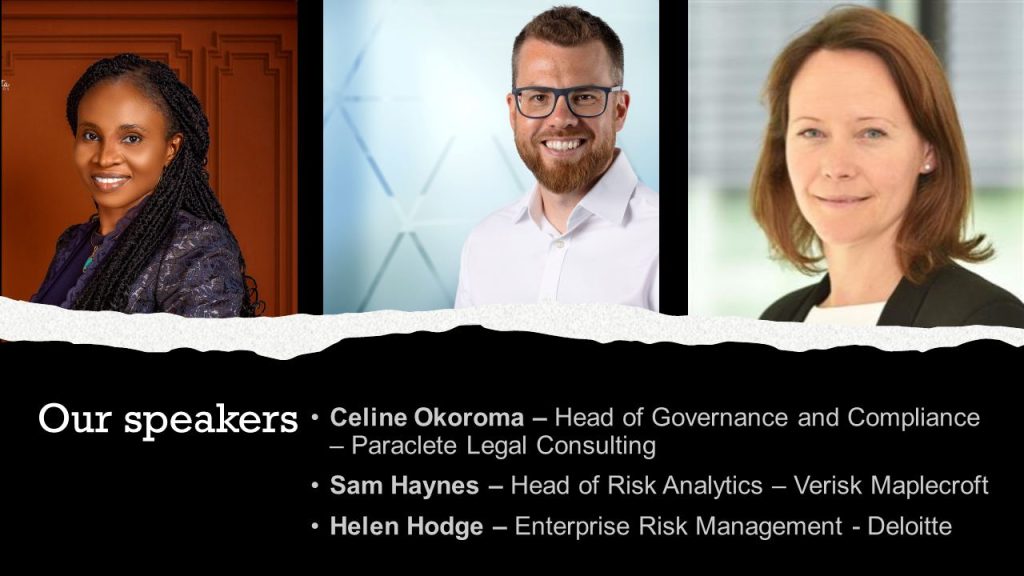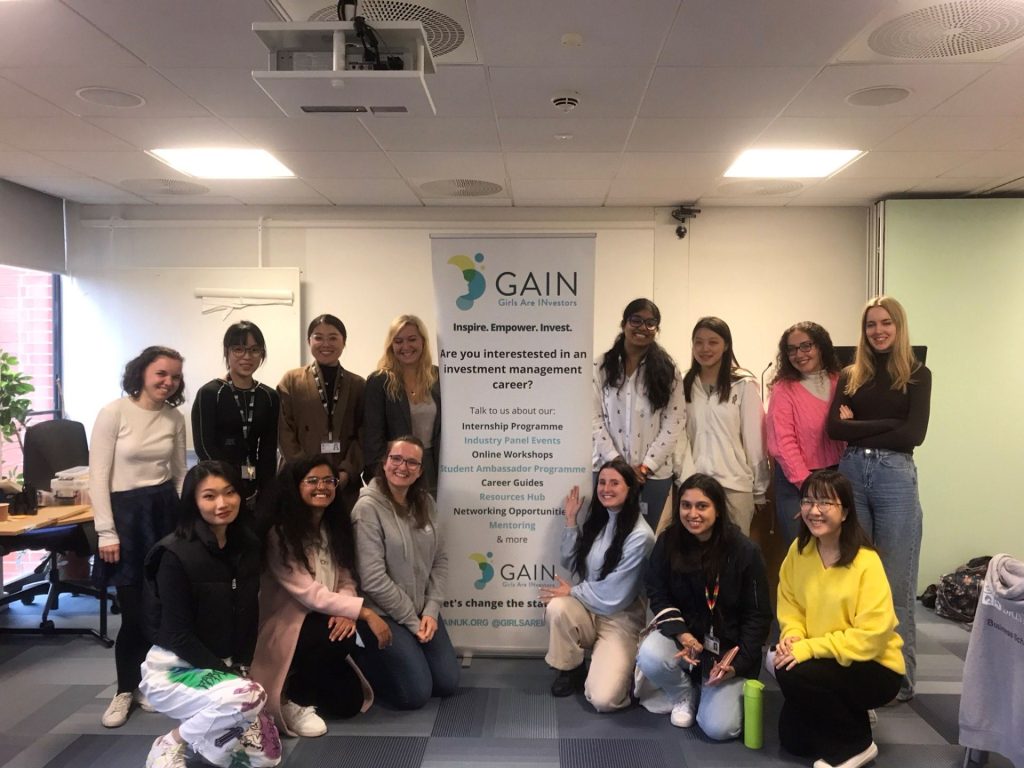In November 2022, the Faculty of Social Sciences & Law hosted the ”How to get into Corporate Governance and Risk Management” panel event with three University of Bristol alumni.
Henrietta Skareng, 3rd year BSc Politics and International Relations student and Career Peer Support Assistant, attended the event and here are her top takeaways:
What is corporate governance and risk management?
Corporate governance refers to the way that firms are directed and controlled. Working with corporate governance means ensuring that practices and procedures are efficient in achieving company objectives and that the interests of all stakeholders are balanced. You can read more about corporate governance on the Chartered Governance Institute UK & Ireland website.
Risk management within the financial sector, much as it sounds, is all about assessing risks within the industry and constructing strategies to avoid or minimise the impact of them. In the context of multiple global challenges, companies are increasingly exposed to risk. In the financial sector in particular there are opportunities available across a range of employers, such as banks, insurance and property firms, as well as in the public sector. You can read more about risk management and control in our myCareer guide.
The diversity of experiences among the event panellists highlights the spectrum of opportunities within corporate governance and risk management. Read on for further details and their top suggestions for entering the field of corporate governance and risk management.
Who were the panelists?
- Celine Okoroma – Head of Governance and Compliance at Paraclete Legal Consulting
- Sam Haynes – Head of Risk Analytics at Verisk Maplecroft
- Helen Hodge – Enterprise Risk Management Specialist at Deloitte
Click their names to explore their profiles on LinkedIn!
Top tips from the panel:
- Do a self-assessment – Assess your strengths and capabilities to figure out what your skills and passions are. A self-assessment could help you discover whether you are suited for a career in the industry and what skills you might need to build on. Try the mycareer strengths assessment.
- Build your skills over time – If you know what role or company you want to work for, research their requirements and find opportunities and experiences that will build skills that align with what the employer is looking for. Often, employers are looking for candidates with strong analytical and quantitative analysis skills, so consider finding experience that could help strengthen your skill-base in those areas. You may find this Competency Framework from CGI
- Utilise LinkedIn – LinkedIn is a great source of inspiration and allows you to connect with other students, alumni, potential employers and professionals working in this area. A simple search for the role or area you are looking to pursue lets you explore what qualifications, experiences, and professional certifications other people working in the sector have.
- Stay up to date on the industry – Visit the websites of professional regulatory organisations, and subscribe to their newsletters to stay up to date with the industry. For example, the Chartered Governance Institute, the Global Risk Report from the World Economic Forum, and the annual risk reports of specific companies you might be interested in. This is a good idea to do before the interview stage to demonstrate your interest in the company and industry overall!
- Get a certificate in corporate governance from the Chartered Governance Institute of the UK and Ireland. If you wish to pursue a role in corporate governance, the speakers recommended that you consider getting a certificate in corporate governance to increase your competency.
Find out more:
- Sector guides – The Career Service provides a range of sector guides with tailored information relating to job prospects and finding work experience for sectors such as administration, consulting and business management, banking and finance, and many more.
- Attend more events like this one – Explore more Career Service events.
- Explore work opportunities and internships on mycareer
- CGI article: Looking to start a career in governance
- Corporate Secretaries International Association industry magazine
- CGI jobs listing – also look on websites like Indeed, LinkedIn and TargetJobs to browse opportunities
- Watch the whole event recording here.
Blog written by Henrietta Skareng, a 3rd year BSc Politics and International Relations student, Student Engagement Team Worker and Career Peer Support Assistant




